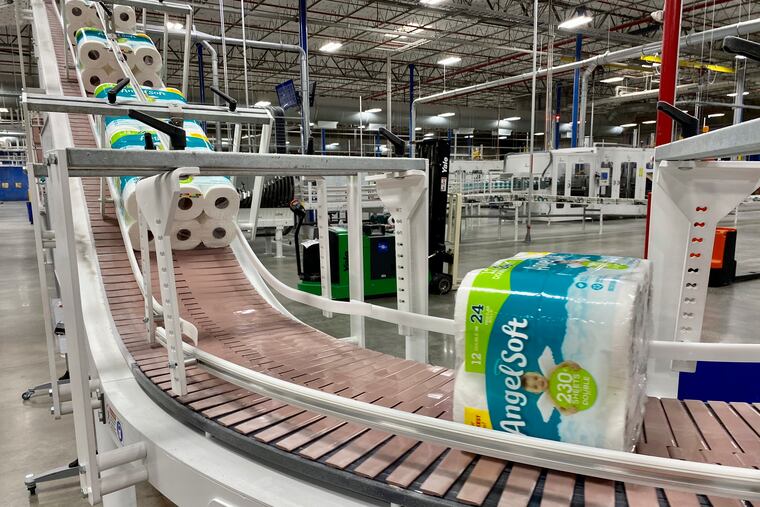Amazon is playing whack-a-mole with coronavirus price gouging, and it’s harming Pennsylvanians | Opinion
An analysis by the PennPIRG Education Fund found surgical masks and hand sanitizer prices spiked by more than 50% on a majority of surveyed products.

As the coronavirus pandemic continues to spread, Pennsylvanians are stocking up on food, hand sanitizer, toilet paper, and other supplies. As if we didn’t have enough to worry about, the growing confusion about how long these measures will last, coupled with heightened fears about getting sick, has turned the entire country into fertile ground for one of the oldest schemes in the world: price gouging.
The number of price gouging complaints is soaring. Attorney General Josh Shapiro has received more than 3,000 complaints since an emergency was declared. In Pennsylvania, the price gouging law dictates that items cannot be sold for more than 20% of their average cost from before an emergency declaration.
Many of these price gouging incidents are likely happening at all kinds of stores across Pennsylvania. But with Pennsylvanians increasingly turning to the vast online marketplaces for their daily needs, unscrupulous sellers are taking advantage — turning these platforms into massive price gouging playgrounds. Thus far, Amazon, eBay, Facebook, Craigslist, and Walmart haven’t done enough to stop unscrupulous sellers from taking advantage of this public health emergency.
On Amazon, for example, a digital thermometer was sold for $27 but had an average price of $17.99 over the last 180 days. Three boxes of 20 N95 masks were sold for $239, or $3.98 per mask, compared with a normal price of $1 per mask. Toilet paper was sold for $98 a box, nearly three times its normal price.
An analysis by the PennPIRG Education Fund found surgical masks and hand sanitizer prices spiked by more than 50% on a majority of surveyed products.
Companies have taken steps to combat this price gouging: Heightened monitoring efforts are flagging items for removal, and some have banned advertisements or the sale of certain products.
But whenever the PennPIRG Education Fund, the Attorney General’s Office, or a journalist looks on these platforms, more problems appear. There are still thermometers selling for more than $500, Lysol wipes marked up five to six times their normal costs, and Cheerios going for $60 for two boxes.
The fundamental flaw in these online marketplaces’ strategy is that they are playing a game of whack-a-mole. They’re only removing unconscionably priced products when an algorithm or shopper flags it. But with new sellers and new products appearing every day, they are getting overrun, and consumers are paying the price.
With the pandemic expected to continue, a bipartisan coalition of more than 346 state legislators from 45 states, including 20 from Pennsylvania, has sent a letter to these companies laying out three specific actions they can take to prevent absurdly priced products from appearing on their platforms in the first place. We are both signers on the letter and call on retailers to do the following:
First, they should create strong policies that prevent sellers from increasing their prices in a significant way from what it was prior to the emergency.
Second, given the hyperspeed at which modern shopping operates, companies should trigger price gouging protections prior to official emergency declarations.
Last, consumers should be able to report price gouging directly to a “Fair Pricing Portal” on each marketplace. Additionally, that data should be shared with attorneys general to enforce price gouging statutes.
When you need it to stay safe from a dangerous virus, it’s simply not right for companies to continue enabling people to prey on the emergency. These companies form the backbone of online retail and have an obligation to stop illegal price gouging now, and put strong practices into place to stop it from happening in the future.
Mary Jo Daley is a member of the Pennsylvania House of Representatives. Tom Killion is a Pennsylvania state senator.